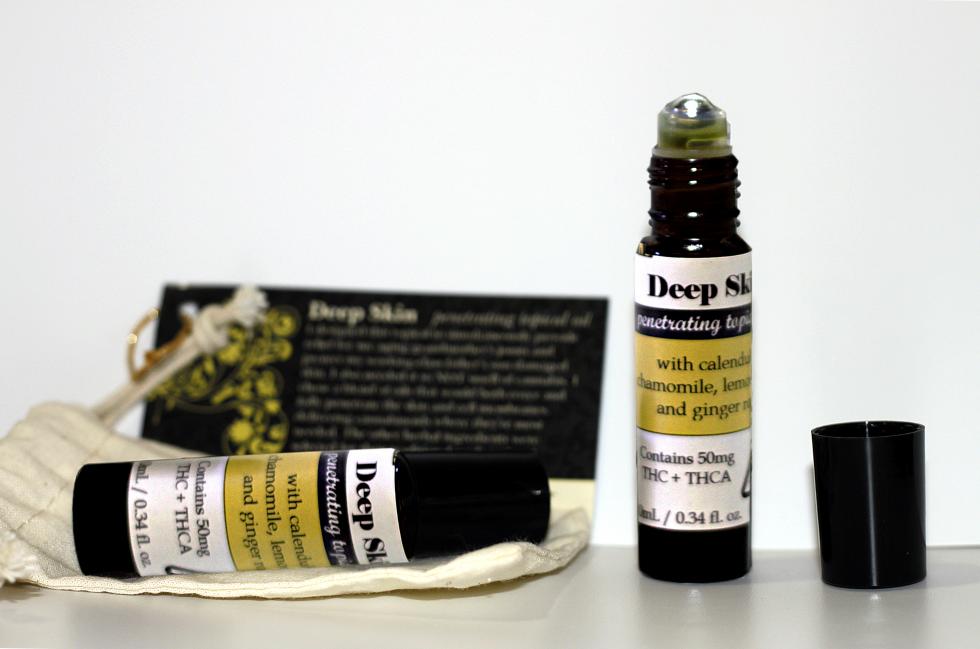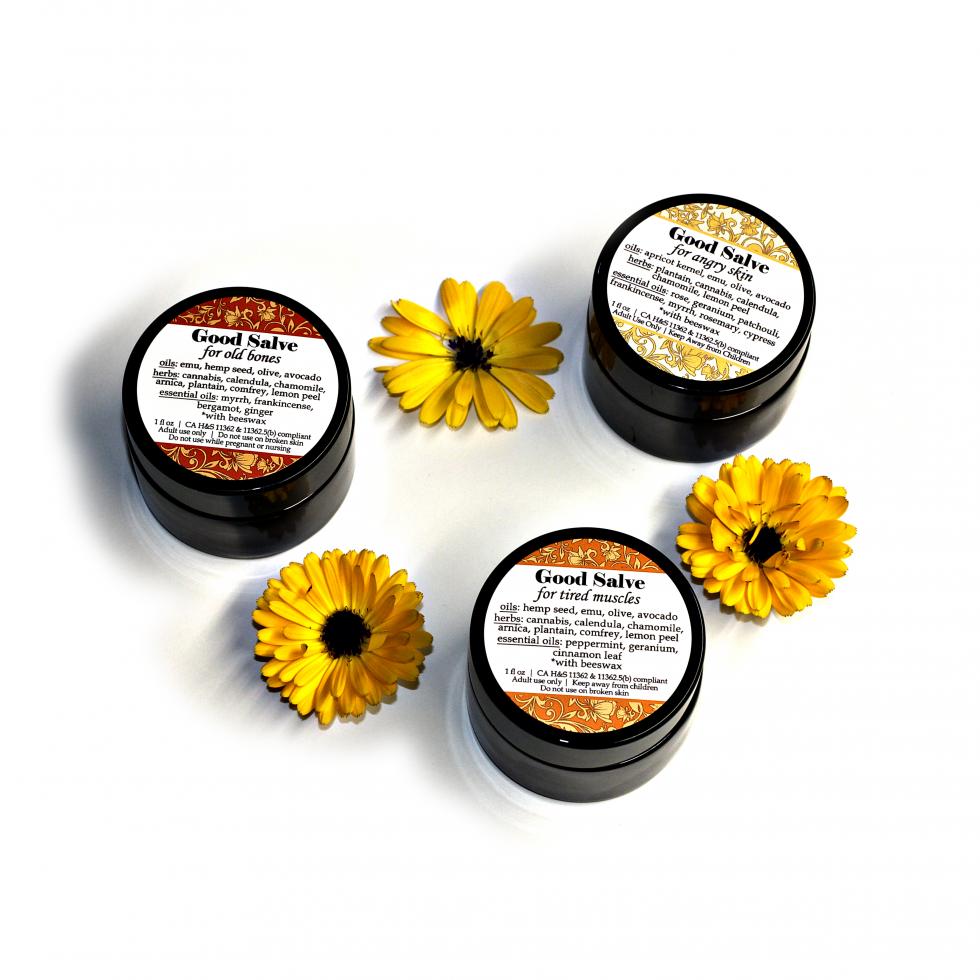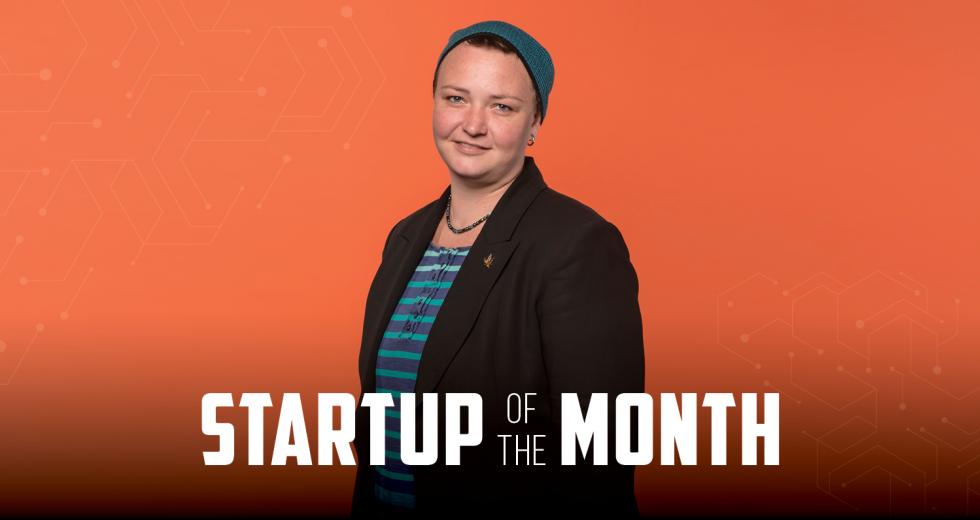“Grandma approved,” reads a tagline on the website for Newell’s Botanicals.
The Sacramento-based startup makes cannabis-infused topical skin care products and for Chelsea Dudgeon, CEO and cofounder, her grandmother was “a tough sell” in the beginning. Dudgeon grew up in a conservative family of Jehovah’s Witnesses, who didn’t exactly cheer for her chosen line of work.
“They would say a lot of not-nice things about me,” recalls Dudgeon, who has been a cannabis advocate since 2012. “They would say things like I’m a stoner and lazy and good-for-nothing.”
Sacramento-based Newell’s Botanicals makes cannabis-infused
topical skin care products. (Photo courtesy Chelsea Dungeon)

But she wanted to help her grandmother, who spent decades on her hands and knees, a housecleaner who scrubbed the floors of mansions and dentist offices. Years of hard labor had caught up, and she suffered aches from arthritis and intense pain from a leg injury and hip replacement.
One day in 2016, Dudgeon went to her garden and concocted a topical skin product fusing cannabis, flowers and herbs she grew herself with a blend of essential oils known for anti-inflammatory properties. She didn’t know if her grandmother would use it. “I told her, ‘I know this will help and I made it just for you and it’s not going to make you high, so do what’s good for you,’” she recalls. “And my grandma felt relief from joint pain for the first time.”
Related: Catching A Wave
Related: Battling for Onsite Consumption
When the product helped ease her grandmother’s pain, Dudgeon realized she had a winner on her hands. The Emerald Cup, the world’s largest cannabis competition, thought so, too — awarding her Deep Skin Penetrating Topical Oil with first place in the Topicals category in 2016 and 2017. This win helped legitimize the brand, she says.
With the 2017 legalization of recreational marijuana in California, everything changed. The Sacramento collective could no longer operate as caregivers, which was allowed under medical marijuana regulations. She isn’t allowed to cultivate her own cannabis for the business and had to form partnerships with other farms to source ingredients. She also had to move into a licensed facility in Sacramento to keep doing production in a way that was permitted.
Newell’s Botanicals makes products from cannabis, flowers and
herbs. (Photo courtesy Chelsea Dungeon)

“When the first draft of regulations hit, it was like having all the ground you were standing on vaporize instantly,” she says. “We didn’t have the skills, expertise or experience to navigate the new legal structure.”
Dudgeon enrolled in the Founder Institute to figure out how to be a CEO and businessperson, and to adapt in this new environment. She sought the counsel of Tracy Saville, who mentors female founders through FourthWave, a Sacramento-based catalyzer of women-led technology companies.
“I don’t know what her IQ is, but it’s off the charts,” says Saville, who also co-owns an 1,800-acre organic hemp farm in Nevada and oversees a CBD health and wellness program. “When she needed to learn about company-structuring and funding, she didn’t just buy books but found the people she needed to find to learn what she needed to learn.”
Saville says she hasn’t met someone with Dudgeon’s kind of grit in a long time. “She can turn out an amazing business plan, sort through strategic relationship problems and concoct a product simultaneously,” Saville says, “and she doesn’t even sweat.”
Since then, Dudgeon has been scaling up, growing from small collective into legitimate business. Now, Newell’s Botanicals has a wide customer base but targets mature women. Other current products include herbal soap and hemp lip balm. The startup is preparing to launch a new product line this season, and a series A round to raise $5 million in the spring.
The business continues to grow, she says, with revenues in the tens of thousands a month and rising. Some hurdles remain. The company can’t make any efficacy claims, as she was told by the California Department of Public Health, so she puts the descriptions in the names of the products (e.g. her flagship product, the Deep Skin Penetrating Topical Oil). The business is also not regulated by the U.S. Food and Drug Administration since the products don’t cross state lines. To expand, any cannabis produced would need to be produced in that state.
As for Dudgeon’s family, she says, they feel completely different about the plant now and she has gone “from being a drug dealer to a healer” in their eyes. “I got to witness firsthand how that shift from drug to medicine changed even the most conservative and buttoned-up person into a believer,” she says.



